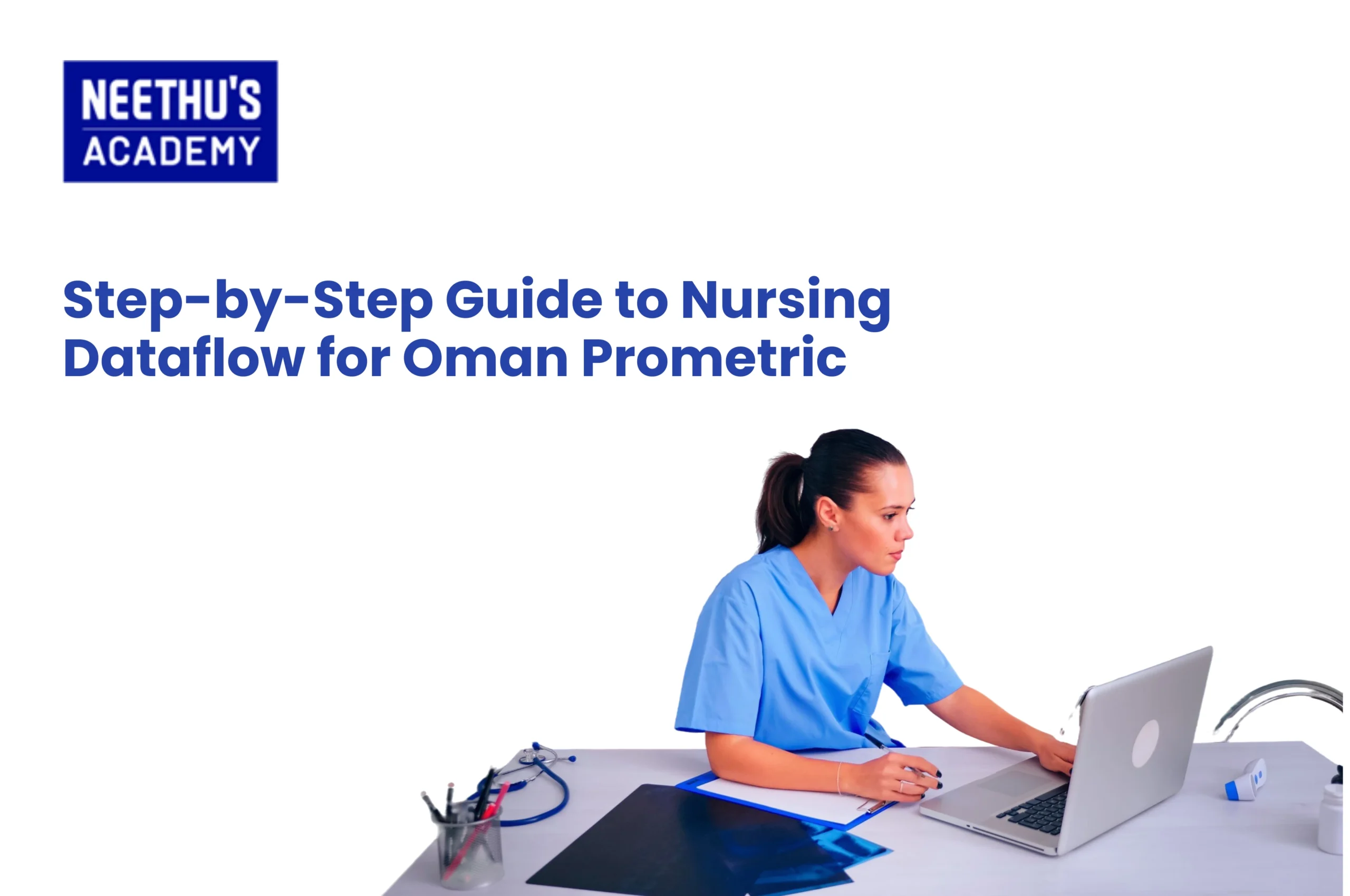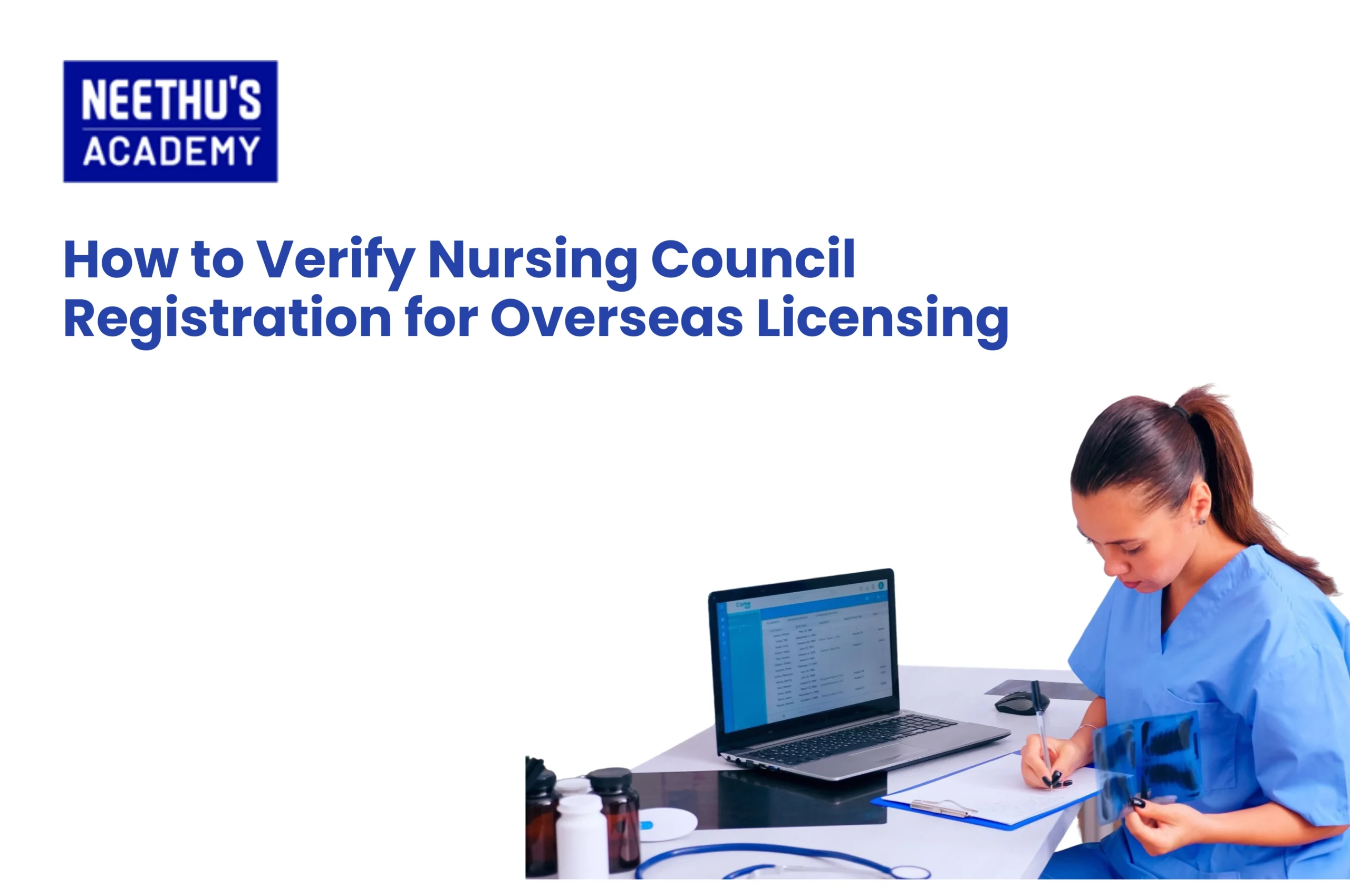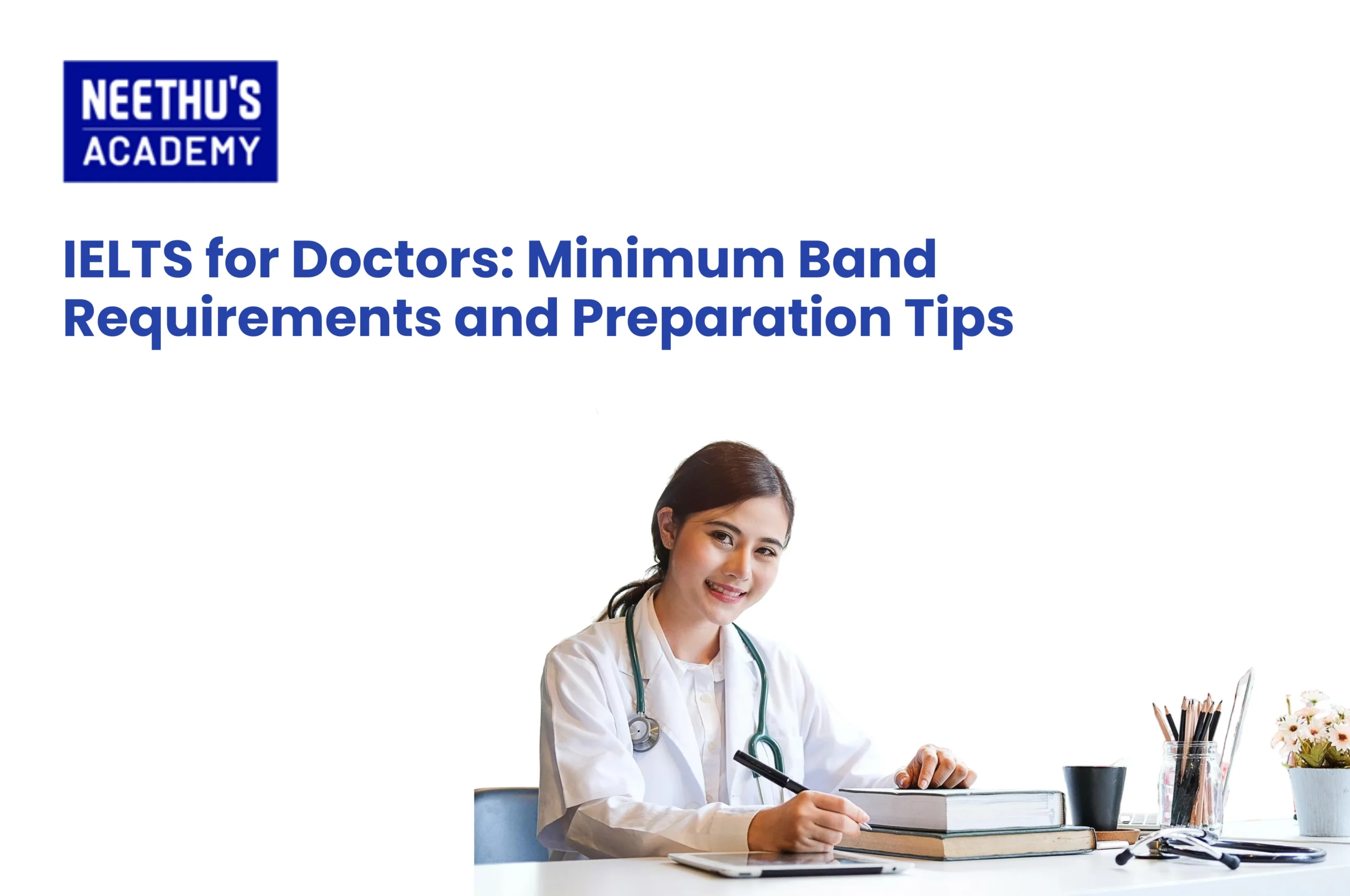Imagine you are running out of time and still have questions to complete! That would be the worst-case scenario while taking a…

OET Synonyms Test: A Comprehensive Guide
Unlike general English tests, the setting of the OET is particularly directed to a medical or healthcare setup. To do well in the OET, a student needs to be familiar with the terminologies in medicine and good at using a wide range of vocabularies, particularly synonyms.
Understanding and using synonyms in OET is an important step to attaining high scores on the test. Synonyms avoid repetition, give more precision to communication, and are very useful for both comprehending and expressing ideas in written and spoken English. This is especially true for healthcare professionals since the quality of patient care largely depends on effective communication. This blog will shed more light on the role of synonyms in OET, strategies to master them, practice exercises, and exam day tips that guarantee success.
What Are Synonyms?
Synonyms are words or phrases that mean exactly or almost the same thing. Examples include “physician” and “doctor,” both referring to a medical professional, and “ailment” and “illness,” both describing a health condition. Yet, just because synonyms have almost similar meanings does not dictate that they can always be used in place of one another. Knowing the subtle differences among synonyms is key to using them appropriately.
Relevance of OET Synonyms
Enhance Clarity: Through the use of different words, healthcare professionals will more accurately describe medical conditions and treatments before patients, colleagues, and caregivers.
Prevents Repetition: Avoid using the same words over and over again in medical documentation to make the reports and records more professional and easier to read.
Aid Comprehension: It helps in understanding medical literature, guidelines, and research papers in which words are used with a vast vocabulary. In brief, mastering synonyms is not just about passing the OET; it’s about becoming a more efficient communicator in your professional career.
Synonyms in the OET Exam
The OET tests four key language skills: Listening, Reading, Writing, and Speaking. Understanding synonyms and how to use the proper form in each case is rather important for all of these modules:
Listening: It is common to find the information reworded in OET Listening test dialogues or monologues. Recognizing synonyms will help you to follow the conversation and to identify the right answers.
Reading: In this section, the important information can be reworded as questions using synonyms. Understanding synonyms is very important to identify the correct answers for multiple-choice questions and gap-fill exercises.
Writing: This part of the examination involves writing a letter, usually of referral or discharge. The long list of synonyms will add substance to your writing and make it professional.
Speaking: As part of the Speaking test, you are given a role-play of scenarios that occur in real medical life. Appropriate synonyms in the conversation guarantee a clear and correct flow of information.
Common Challenges Faced by Test Takers
Despite the importance of synonyms, very few candidates are comfortable with this part of the OET. Some common challenges include:
Vocabulary Limitation: Many candidates, especially those for whom English is a second language, may not have a wide vocabulary and are often unfamiliar with a reasonable range of synonyms.
Misinterpretation: Some synonyms may have subtle differences in meaning or usage, leading to misinterpretation and incorrect answers.
Overuse: Some candidates try so hard to demonstrate their knowledge of synonyms that they overuse them, ending up with awkward or unnatural sentences that may either puzzle or confuse the reader or listener.
Grasping these challenges and taking serious efforts to deal with them forms the essence of mastering synonyms for the OET.
Strategies for Mastering OET Synonyms
Building a Robust Vocabulary
The very bedrock of mastering synonyms is to have a robust vocabulary. Some strategies that can help you include:
Extensive Reading: Research medical journals, articles, textbooks, and case studies. Observe how synonyms are used in context. For example, note how “hypertension” and “high blood pressure” might be used to mean the same thing in another context.
Flashcards: Make a series of flashcards containing terms from medical vocabulary on one side, and their synonyms on the other. Review them regularly to reinforce memory.
Utilize Apps: Take advantage of a vocabulary-builder app for health professionals that makes available medical vocabulary and quiz topics to learn about synonyms effectively.
Contextual Learning
Practice in Context: Synonyms are best learned not as isolated words but rather within a sentence or even a paragraph. For example, practice writing sentences which contain both the original term and its synonym.
Engage in Conversations: Engage in medical discussions, whether online or in person, where active usage and hearing of synonyms occur. This could be study groups, forums, or professional networks.
Regular Revision
Revision is very important in being able to remember vocabulary. Here is how you can organize your revision:
Scheduled Reviews: Set specific times during the week to review the synonyms learned. Spaced repetition is quite good when reviewing terms at increasingly longer times.
Self-Testing: Take quizzing or practice exercises that test knowledge about the synonym learned. This would tell you where you need more practice.
Study Plan for OET Synonyms Mastery
Having a well-structured study plan can help in the systematic mastering of synonyms. Following is one such suggested plan:
Week 1-2: Vocabulary Building
Daily Reading: Spend 30 minutes every day reading medical articles, and while doing so, focus on searching for and learning new synonyms.
Flashcards: Make it a point to learn 10 new synonyms daily and keep revising by spaced repetition.
Week 3-4:
Writing Practice: Draft sample letters of referral or patient reports, incorporating as many synonyms as possible. This will enable you to use what you have learned in a very practical way.
Speaking Sessions: Take turns practicing with a study partner or in a study group. Focus on using synonyms during the conversation, primarily in situations where the setup is similar to the OET Speaking test.
Week 5: Revision and Testing
Revision sessions: Take this week to review all the synonyms you have covered till now. Go back to your flashcards, look over your notes, and go over the words once more that you found challenging.
Mock Tests: Attempt full-length OET practice tests; extra care should be taken regarding how synonyms are used in the Listening, Reading, Writing, and Speaking modules of the test. This will further identify areas where gaps still exist in your performance.
Having a well-structured study plan can help in the systematic mastering of synonyms. Following is one such suggested plan:
Week 1-2: Vocabulary Building
Daily Reading: Spend 30 minutes every day reading medical articles, and while doing so, focus on searching for and learning new synonyms.
Flashcards: Make it a point to learn 10 new synonyms daily and keep revising by spaced repetition.
Week 3-4:
Writing Practice: Draft sample letters of referral or patient reports, incorporating as many synonyms as possible. This will enable you to use what you have learned in a very practical way.
Speaking Sessions: Take turns practicing with a study partner or in a study group. Focus on using synonyms during the conversation, primarily in situations where the setup is similar to the OET Speaking test.
Week 5: Revision and Testing
Revision sessions: Take this week to review all the synonyms you have covered till now. Go back to your flashcards, look over your notes, and go over the words once more that you found challenging.
Mock Tests: Attempt full-length OET practice tests; extra care should be taken regarding how synonyms are used in the Listening, Reading, Writing, and Speaking modules of the test. This will further identify areas where gaps still exist in your performance.
Exam Day Tips
How to Approach OET Synonym Questions During the Exam
This test day, all one needs is how to go about answering questions dealing with synonyms. Apply this strategy:
Read Carefully: Always read through the entire sentence or even the entire paragraph before deciding on a synonym. That way, you will be better placed in picking out the most appropriate synonym.
Avoid Assumptions: Do not go merely by familiarity. Some synonyms may be less obvious but more fitting in a particular context.
Double-Check: Aspire to reread your answers, especially for the Writing section, to ensure that the synonym chosen has development in meaning and tone.
Strategies for Time Management while Dealing with Tasks on Vocabularies
Prioritize: Begin with more available questions and save difficult synonym questions toward the end. This way, you will start your test feeling strong and confident about handling the other questions more effectively.
Time Allocation: Allocate specific times to the different sections of the exam, preventing you from spending too much time on one question. For example, you can allocate a minute or two for synonym questions.
Mark and Move: If you’re not certain about the synonym, mark it and move on. You will be able to come back to it in case you have time later.
Common OET Synonyms in Medical Terms
Medical Term | Synonym | Context |
Illness | Disease, Ailment | General health conditions |
Physician | Doctor, Medical Practitioner | Referring to a healthcare provider |
Treatment | Therapy, Care | Referring to the process of medical intervention |
Medication | Drug, Medicine | Referring to substances used for treatment |
Fatigue | Tiredness, Exhaustion | Describing a state of physical or mental weariness |
Diagnose | Identify, Determine | The process of identifying a medical condition |
Surgery | Operation, Procedure | Referring to medical interventions involving incisions |
Conclusion
Mastering OET synonyms is one of the most important things in acing the test, especially for health professionals who need to communicate in English effectively. A well-built vocabulary is just half the battle. There are specific ways or strategies to improve your performance at the exam and as a professional communicator. Remember that with constant effort and a well-structured study plan, you can get quite far in terms of preparation regarding synonyms in the OET.
Stay focused and work hard in practice!
Related Blogs
- All Posts
- OET
In case you are immigrating to Canada or looking for higher studies in the French-speaking parts of the nation, then the TCF…
Feeling a bit overwhelmed about the OSCE? You're not alone! The Objective Structured Clinical Examination is a big step in your medical…
Course Enquiry
Latest Posts
- All Posts
- canada
- CBT
- DHA
- French
- GENERAL
- German
- Haad
- IELTS
- IQN NEW ZEALAND
- MOH
- NCLEX-RN
- NHRA
- OET
- OSCE
- Pearson Vue
- PROMETRIC
- PTE
- TOEFL
- Back
- NCLEX - NGN
- Back
- OET FOR PHYSIOTHERAPIST
- OET FOR PHARMACIST
- OET FOR DOCTORS



Frequently Asked Questions
You can improve by reading medical literature, using flashcards, practicing with synonym exercises, and regularly revising the vocabulary you’ve learned.
The Goethe A2 is a basic exam that tests the German Proficiency Language in four areas: Listening, Reading, Writing, and Speaking. The structure of its examination paper covers multiple-choice questions, short questions, and practical tasks.
Not always. While synonyms have similar meanings, their usage can vary depending on the context. It’s essential to understand these subtle differences to use them accurately in the exam.
If you come across an unfamiliar synonym, try to infer its meaning from the context. If unsure, move on and return to the question later if time permits.
